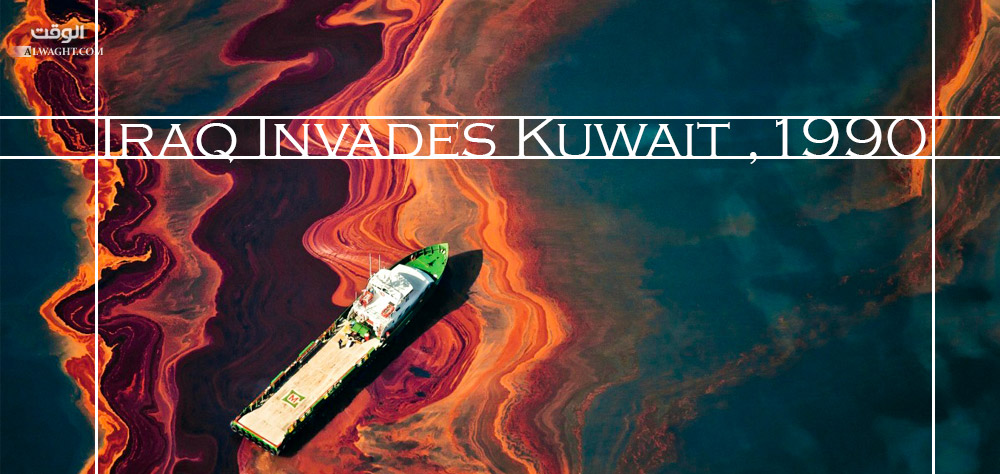Since the beginning, Iraq had always claimed Kuwait part of its territory. One of the early claims surfaced in the 1930's when oil was discovered in the region. Another claim came right after Kuwait gained its independence, but Britain and the Arab league rejected that assertion. Finally Iraq recognized Kuwait's borders in 1963, and as a result, both countries established close ties
During the 1980 Iraq-Iran War Kuwait aided Iraq with large amounts of money, and relations between both countries got even better. But that didn’t stop Saddam Hussein from invading his neighboring country on August 2, 1990. Again, his justification was that Kuwait historically belonged to Iraq, and the land should be returned it its original owners. Iraqi troops crossed the borders by land and in about 48 hours seized and took complete control of the whole country
The invaders caused so much damage to the country's infrastructure. Looting of civilian houses and other government institutions was widely spread. Above all, the treatment of Kuwaitis was brutal—the troops detained thousands of civilians who were interrogated in an uncivilized manner: electrocutions and mutilations of body parts. There were also numerous incidents of murders and rapes 2.
The Amir of Kuwait at that time, Sheikh Jaber Al Sabah, pleaded to the United Nations for help. Fortunately, the UN Security Council quickly responded in mid-January, 1991.
A coalition of nations led by the U.S. and Saudi Arabia began operation Desert Storm: a massive air strike against the Iraqi military. After five weeks of continuous air missions, it was clear the enemy was exhausted. Coalition forces then launched a ground assault forcing Iraqi soldiers to withdraw
On February 26, 1991, Kuwait was liberated. This is a memorable day for all Kuwaitis, and every year Kuwaitis celebrate this day with great pride and joy. They go to the streets and show their patriotism by waving the Kuwaiti flag, setting fireworks and singing National songs.
During the pullback, Iraqi forces set fire to Kuwaiti oil wells, which caused the biggest and most severe environmental catastrophe in Kuwait. It took over nine months to fully extinguish the fires. As a result, the air was completely polluted, many people suffered breathing problems, and many animal species have become endangered. According to Wikipedia, it cost Kuwait more than five billion dollars to repair the oil infrastructure 1.
The invasion was a turning point in Kuwait as it changed almost every aspect of the country. The people were somehow hostile toward the ruling family who were in exile during the war. Fortunately, the rulers responded by:
1- Instituting martial law and staging trials.
2- Compensating citizens for their loses.
3- Granting more freedoms to the people, especially those of expression and press.
4- Reinstating the National Assembly in 1992.
One of Kuwait's biggest campaign after the war was the plead to bring back the over 600 prisoners of war that Hussein claimed did not exist. According to the National Committee for Missing & Prisoners of War web site, there was clear evidence that Iraq held 605 prisoners, some of which were women 8. For more than 10 years families of those POW's were hopeful that some day their loved ones would return. The regime insisted that no prisoners existed. Not until recently did the families lost hope. After the recent U.S. war against Iraq, DNA tests from the mass graves showed that some corpses were of Kuwaiti POW's.
Kuwait was one of the first Middle Eastern countries that allied with the U.S. in the 2003 military operation against Hussein and his regime. And the people of Kuwait were relieved and thankful that the tyrant who once harassed their country was captured.
Source: iml.jou.ufl.edu



























